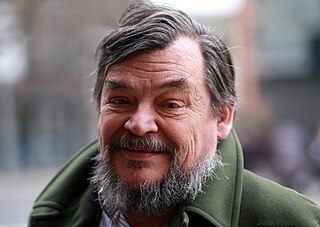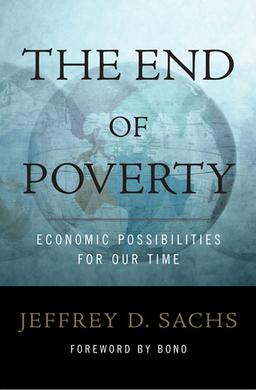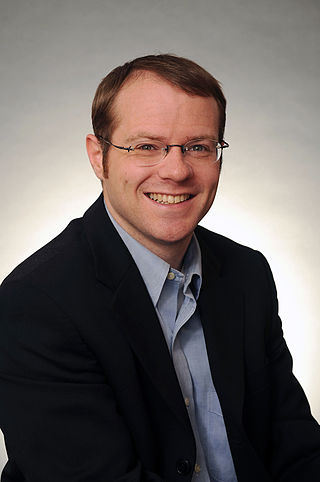
International development or global development is a broad concept denoting the idea that societies and countries have differing levels of economic or human development on an international scale. It is the basis for international classifications such as developed country, developing country and least developed country, and for a field of practice and research that in various ways engages with international development processes. There are, however, many schools of thought and conventions regarding which are the exact features constituting the "development" of a country.

Erik Steenfeldt Reinert is a Norwegian economist, with development economics, economic history and history of economic policy as his specialties.

The Millennium Development Goals (MDGs) were eight international development goals for the year 2015 that had been established following the Millennium Summit of the United Nations in 2000, following the adoption of the United Nations Millennium Declaration. These were based on the OECD DAC International Development Goals agreed by Development Ministers in the "Shaping the 21st Century Strategy". The Sustainable Development Goals (SDGs) succeeded the MDGs in 2016.

Poverty reduction, poverty relief, or poverty alleviation, is a set of measures, both economic and humanitarian, that are intended to permanently lift people out of poverty.

John James Kirton is a professor of political science and the director and co-founder of the G7 Research Group, co-director and founder of the G20 Research Group, founder and co-director of the Global Health Diplomacy Program, and founder and co-founder of the BRICS Research Group, all housed at the Munk School of Global Affairs at University of Trinity College in the University of Toronto. Since 2016, he has served as interim director of the International Relations Program at Trinity College in the University of Toronto.

The End of Poverty: Economic Possibilities for Our Time (ISBN 1-59420-045-9) is a 2005 book by American economist Jeffrey Sachs. It was a New York Times bestseller.
Joseph Hanlon is a journalist, social scientist and Senior Lecturer in Development Policy and Practice at the Open University, Milton Keynes, United Kingdom. Born in the United States, he moved to Britain in 1971.
The Brooks World Poverty Institute (BWPI) is a research centre at the University of Manchester dedicated to multidisciplinary research on poverty, inequality and growth. It was established in 2005 following the donation of £1.3 million to the university by the Rory and Elizabeth Brooks Foundation, one of the largest known gifts to fund poverty research in Europe. In September 2008, the Foundation awarded a further £1.4 million to the Brooks World Poverty Institute over three years and in June 2012, a further £1 million.

Hossain Zillur Rahman is an academic, economist and policy maker from Bangladesh. Combining degrees in economics and political sociology, Hossain Zillur Rahman is a leading policy voice on poverty, governance, social protection, education, social protection, urbanization and political development. He led the drafting of the poverty reduction strategy of the government in 2005 and was a member of the Independent South Asian Commission on Poverty Alleviation (ISACPA). He founded the Dhaka-based think-tank Power and Participation Research Centre (PPRC) in 1996 and prior to that was for over twenty years a leading researcher at the Bangladesh Institute of development Studies.

The Institute of Development Studies (IDS) is a think tank affiliated with the University of Sussex in Brighton, England, and based on its campus in Falmer, East Sussex. It delivers research and teaching in the area of development studies, and was recognised as the number one international development think-tank in the 2019 Global Go To Think Tank Index Report.
A cash transfer is a direct transfer payment of money to an eligible person. Cash transfers are either unconditional cash transfers or conditional cash transfers. They may be provided by organisations funded by private donors, or a local or regional government.

Benjamin K. Sovacool is an American academic who is director of the Institute for Global Sustainability at Boston University as well as Professor of Earth and Environment at Boston University. He was formerly Director of the Danish Center for Energy Technology at the Department of Business Development and Technology and a professor of social sciences at Aarhus University. He is also professor of energy policy at the University of Sussex, where he formerly directed the Center on Innovation and Energy Demand and the Sussex Energy Group. He has written on energy policy, environmental issues, and science and technology policy. Sovacool is also the editor-in-chief of Energy Research & Social Science.
David Lewis is a British scholar who is Professor of Anthropology and Development at the London School of Economics and Political Science (LSE).

Martha Chen is an American academic, scholar and social worker, who is presently a lecturer in public policy at the Harvard Kennedy School and senior advisor of the global research-policy-action network WIEGO and a member of the Advisory Board of the United Nations University World Institute for Development Economics Research (UNU-WIDER). Martha is a development practitioner and scholar who has worked with the working poor in India, South Asia, and around the world. Her areas of specialization are employment, poverty alleviation, informal economy, and gender. She lived in Bangladesh working with BRAC, one of the world's largest non-governmental organizations, and in India, as field representative of Oxfam America for India and Bangladesh for 15 years.

Thomas G. Weiss is a distinguished scholar of international relations and global governance with special expertise in the politics of the United Nations. He was named a 2016 Andrew Carnegie Fellow for a project exploring the concept of a world without the United Nations. Since 1998, he has been Presidential Professor at the Graduate Center of the City University of New York, and is Director Emeritus of the Ralph Bunche Institute for International Studies. At present, he also is Co-Chair, Cultural Heritage at Risk Project, J. Paul Getty Trust; Distinguished Fellow, Global Governance, The Chicago Council on Global Affairs; Global Eminence Scholar, Kyung Hee University, Seoul. In his spare time, he is a wood sculptor.
Rorden Wilkinson FAcSS FRSA is a British academic and author. He is Deputy Vice-Chancellor (Academic) and Professor of International Political Economy at Macquarie University, Sydney, Australia. He was previously Pro Vice-Chancellor and Professor of International Political Economy at the University of New South Wales, Sydney, Australia; Deputy Pro Vice-Chancellor, Professor of Global Political Economy, and a Fellow of the UK Trade Policy Observatory at the University of Sussex; and Professor of International Political Economy and Research Director of the Brooks World Poverty Institute at the University of Manchester. He did his doctoral work and began his academic career at the University of Auckland, New Zealand. He has been a visiting scholar at Brown University, USA, Wellesley College, USA, and the Australian National University.
Naila Kabeer is an Indian-born British Bangladeshi social economist, research fellow, writer and Professor at the London School of Economics. She was also president of the International Association for Feminist Economics (IAFFE) from 2018 to 2019. She is on the editorial committee of journals such as Feminist Economist, Development and Change, Gender and Development, Third World Quarterly and the Canadian Journal of Development Studies. She works primarily on poverty, gender and social policy issues. Her research interests include gender, poverty, social exclusion, labour markets and livelihoods, social protection, focused on South and South East Asia.

Mick Moore is a political economist and professorial fellow at the Institute of Development Studies at the University of Sussex. He is also the founding CEO of the International Centre for Tax and Development.
Gautam Bhan is an LGBTQ+ rights activist in India as well as a researcher, writer and faculty member at the Indian Institute for Human Settlements. As the faculty member of IIHS, he works and teaches politics of poverty, inequality and development in Indian cities with a focus on housing, social security, governance and urban and planning theory. He is also the spokesman for LGBTQ+ rights and one of the petitioners in the legal battle to decriminalize homosexuality in India. He is the coordinator of Program for Working Professionals in Urban Development and co-anchors three major research projects on evictions, urban inclusion, slum up-gradation, and the relationships between poverty, inequality and urban violence.

Cash and Voucher Assistance (CVA) is an umbrella term for humanitarian aid programs that provide cash, or vouchers exchangeable for goods and services, directly to recipients. CVA represents an increasingly significant modality or tool in providing aid, responding to a number of factors including movement from a charity-based to a rights-based approach to aid; the increased need for cost efficiency responding to downwards trends in aid funding; and a realisation of the cost effectiveness of CVA in comparison with prior approaches.













